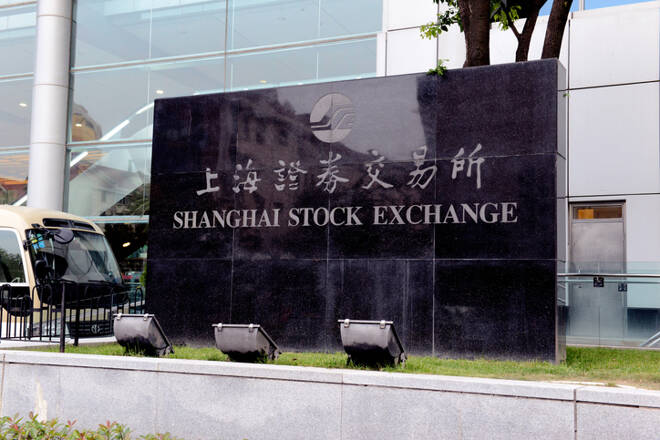Advertisement
Advertisement
Asia Finishes Flat to Lower as China Finance Ministry Announces Lower Import Tariffs on Over 850 Products
By:
The tariff changes were made to “increase imports of products facing a relative domestic shortage, or foreign specialty goods for everyday consumption,” the ministry said in a statement on its website.
The major Asia Pacific stock indexes finished flat to lower on Monday despite further signs of a thawing of tensions between the United States and China.
Last week ended on an optimistic note after U.S. President Donald Trump boosted investor sentiment by tweeting he had “a very good talk” with China’s leader Xi Jinping about the so-called Phase One trade deal the two economic powerhouses struck in mid-December. This tweet indicated to investors that further progress has been made after they reached their initial agreement.
Furthermore, the President also added that China has started “large scale” purchases of U.S. agricultural products, and details of the date and the location of a formal deal signing are being arranged. On Saturday, Trump said both countries would “very shortly” sign the deal.
Early Monday, however, Chinese investors responded negatively to the news that China would lower tariffs on over 850 products from January 1, including frozen pork, as well as some information technology products starting July 1.
Japan’s Nikkei 225 Index settled at 23821.11, up 4.48 or +0.02%. South Korea’s KOSPI Index finished at 2203.71 and Hong Kong’s Hang Seng Index closed at 27879.73, up 8.38 or +0.03%.
China’s Shanghai Composite Index settled at 2962.75, down 42.19 or -1.40% and Australia’s S&P/ASX 200 finished at 6785.10, down 31.20 or -0.46%.
Trump and President Xi Had ‘Very Good Talk’
The talk between the two leaders came after the countries announced last week that they had agreed on the text of a so-called Phase One trade deal. The agreement includes some tariff relief, increased agricultural buying, and certain structural changes to intellectual property and technology issues.
Details of the initial agreement have not been released, however. China did not specify the amount of U.S. farm goods it will buy, while the U.S. said China pledged to purchase a total of $40 billion in farm goods over a two-year period.
As part of the limited deal, the U.S. said it will maintain 25% tariffs on approximately $250 billion of Chinese imports while reducing tariffs on $120 billion in products to 7.5%. Some analysts said the rollback was smaller than expected, CNBC reported.
China Set to Lower Import Tariffs, Finance Ministry Says
According to CNBC, China will lower tariffs on products ranging from frozen pork and avocado to some types of semiconductors next year as Beijing looks to boost imports amid a slowing economy and a trade war with the United States.
Next year, China will implement temporary import tariffs, which are lower than the most favored-nation tariffs, on more than 850 products, the finance ministry said on Monday. That compared with 706 products that were taxed at temporary rates in 2019.
The tariff changes were made to “increase imports of products facing a relative domestic shortage, or foreign specialty goods for everyday consumption,” the ministry said in a statement on its website.
About the Author
James Hyerczykauthor
James Hyerczyk is a U.S. based seasoned technical analyst and educator with over 40 years of experience in market analysis and trading, specializing in chart patterns and price movement. He is the author of two books on technical analysis and has a background in both futures and stock markets.
Advertisement
